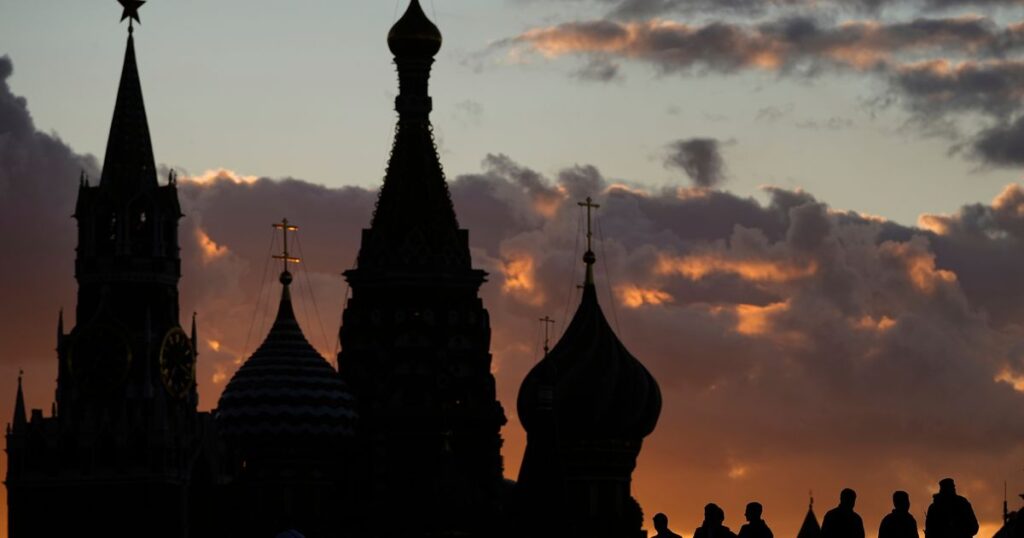MOSCOW (AP) — Syria’s interim leader, who led a swift rebel offensive last year that ousted former Syrian President Bashar Assad despite years of Moscow’s support, arrived in Russia on Wednesday on his first visit.
Interim President Ahmad al-Sharaa is set to hold talks in the Kremlin with Russian President Vladimir Putin to “discuss the current condition and prospects for the development of Russian-Syrian ties in the trade and economic and humanitarian spheres, as well as the latest developments in the Middle East,” the Kremlin said. The meeting underlines Moscow’s desire to establish working ties with Syria’s new leadership and secure Russia’s military foothold in the country.
Assad was an ally of Russia, and Moscow’s scorched-earth intervention in support of him a decade ago turned the tide of Syria’s civil war, keeping Assad in his seat until his swift removal in December.
Russia, which has focused on the fighting in Ukraine and kept only a small military contingent in Syria, didn’t try to counter the rebel offensive but offered asylum to Assad after he fled the country.
Syrian state news agency SANA reported that al-Sharaa and Putin will “discuss regional and international developments of mutual interest and explore ways to develop cooperation to serve the common interests of both countries.”
In a recent interview with the CBS News show “60 Minutes,” al-Sharaa said the current Syrian authorities “will use all available legal means” to demand the trial of Assad.
Speaking to reporters on Monday, Russia’s Foreign Minister Sergey Lavrov emphasized that Moscow granted asylum to Assad on humanitarian grounds as “he and his family faced physical extermination.” Lavrov rejected recent speculation that the former Syrian president had recently been treated for poisoning, saying that he “had no problems in living in our capital and there have been no poisonings.”
Despite having been on opposite sides of the battle lines during the civil war, the new rulers in Damascus have taken a pragmatic approach to relations with Moscow. Russia has retained a presence at its air and naval bases on the Syrian coast and the Kremlin has voiced hope for negotiating a deal to keep the outposts. Moscow has also reportedly sent oil shipments to Syria.
A Russian delegation visited Damascus in January, and Syria’s Foreign Minister Asaad al-Shibani visited Moscow in July.
In the CBS interview, al-Sharaa noted that “Russia has close and long-standing relations with Syria, which relate to the basic structure of the state and to energy and food, for which Syria depends partly on Russian supplies, as well as some old strategic interests.”
___
Associated Press journalist Abby Sewell in Beirut contributed to this report.

